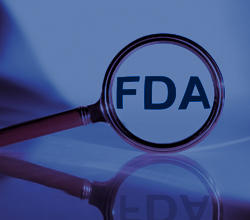
HIPAA Gap Analysis, Risk Assessment and Risk Analysis - Finding and Managing Risks to Protected Health Information
 Jim Sheldon-Dean
Jim Sheldon-Dean
 90 Min
90 Min
Product Id: 703180
This training on HIPAA compliance will teach the attendees how to examine their security policies, practices, and risk issues to find and fill any gaps in the documentation that is required by the HIPAA rules to show compliance, survive audits, and avoid enforcement action.

Medical Records: Compliance with CMS Hospital CoPs and Proposed Changes
 Sue Dill Calloway
Sue Dill Calloway
 120 Min
120 Min
Product Id: 705244
This training program will cover in detail the CMS regulations and interpretive guidelines for medical records. It will also discuss important proposed changes to the CMS discharge planning standards including changes to the federal law on alcohol and drug records.

Nursing: CMS CoP Standards for Hospitals and Proposed Changes: 2019 Update
 Sue Dill Calloway
Sue Dill Calloway
 120 Min
120 Min
Product Id: 705239
This training program will cover requirements in the CMS hospital CoP manual on nursing section. It will discuss proposed changes in the Hospital Improvement Act including plans of care, staffing, policy changes, documentation, supervision, nursing leadership, verbal orders, antibiotic stewardship program and much more.

Documentation of Medical Necessity - Focus for OIG and other auditors
 Laura S Hargraves
Laura S Hargraves
 60 Min
60 Min
Product Id: 705139
This medical necessity documentation webinar will cover all the key information needed to support your efforts to document and demonstrate Medical Necessity of services.

Contemporary Case Management Staffing and Models: Best Practices in the Era of Value-Based Purchasing
 Toni Cesta
Toni Cesta
 60 Min
60 Min
Product Id: 705424
This webinar will review contemporary, best practice, case management models including descriptions of the two most commonly used models, the key differences between the models, as well as how they should be designed and structured. The webinar will also discuss the steps needed to re-engineer a case management department and tips for identifying the best model for your organization.

Best Practices in Nursing Documentation: Writing Effective and Legal Proof Notes
 Laura S Hargraves
Laura S Hargraves
 60 Min
60 Min
Product Id: 705138
This healthcare documentation webinar will discuss how to create a lawsuit-proof, auditable nursing documentation and how to maintain compliance over the course of the document life-time. You will learn how to de-risk your documentation so as to withstand legal scrutiny.

Chief Compliance Officer: What does it take to do the job? The Organization's and CCO's Responsibilities
 Laura S Hargraves
Laura S Hargraves
 60 Min
60 Min
Product Id: 703303
This webinar will explain how to select an effective Chief Compliance Officer (CCO) or Chief Risk Officer (CRO) best suited to the position. It will also review the skills needed to communicate the essence and structure behind a good compliance program.

CMS Restraint and Seclusion (Most Problematic Standard for Hospitals and 2019 Change)
 Sue Dill Calloway
Sue Dill Calloway
 120 Min
120 Min
Product Id: 705145
This program will discuss the most problematic standards in the restraint section. It will cover the 50 pages of restraints standards that hospitals must follow according to CMS.

Grievances and Complaints: What Hospitals Should Know about the CMS, Joint Commission, DNV and OCR Standards?
 Sue Dill Calloway
Sue Dill Calloway
 120 Min
120 Min
Product Id: 705231
This training program will discuss in detail the CMS requirements for hospitals to help prevent the hospital from being found out of compliance with the grievance regulations. It will also cover a new law under the OCR Section 1557 which requires the hospital to have a new process for handling discrimination complaints.

Bundled Payment Review: How Case Management Can Play a Strategic Role
 Toni Cesta
Toni Cesta
 60 Min
60 Min
Product Id: 705119
This webinar will teach you how bundled payments actually work as they move from demonstration to reality. It will discuss how case management must become a fully integrated across the continuum model.

The Provider Self Disclosure Protocol (SDP) and the OIG- Compliance: Self - Reporting to OIG - When should this happen and how to do it?
 Laura S Hargraves
Laura S Hargraves
 60 Min
60 Min
Product Id: 703203
This training on OIG Self-Disclosure Protocol will help the attendees on the revised self-disclosure protocol (SDP), the process and procedures for self-reporting and the risks of not self-reporting. It will also review the need for the organization to be aware of excluded entities.

How to Think Like an Accountable Care Organization - Integrating Case Management Across the Continuum
 Toni Cesta
Toni Cesta
 60 Min
60 Min
Product Id: 705201
This program provides the attendee with concrete and implementable strategies for integrating and embedding case management across the continuum of care.

Mastering Medicare and Medicaid Marketing Regulations: Do's and Don'ts
 William Mack Copeland
William Mack Copeland
 60 Min
60 Min
Product Id: 705230
This webinar will review not only the Anti-Kickback Statute and its safe harbors, but will provide an in-depth overview of OIG guidance and advisory opinions dealing with marketing activities, as well as a review of case law regarding marketing behavior.

CMS Hospital Improvement Act Proposed Changes: Nursing, Medical Records, Infection Control, Antibiotic Stewardship Program, Restraints, QAPI
 Sue Dill Calloway
Sue Dill Calloway
 120 Min
120 Min
Product Id: 705197
This program is going to cover the proposed changes that CMS wants to make for all hospitals including critical access hospitals. These changes will affect many different departments of the hospital including nursing, QAPI, medical records, lab, restraint standards, discrimination, patient rights, and more.

HIPAA Texting and Emailing | Myths vs Realities
 Brian Tuttle
Brian Tuttle
 60 Min
60 Min
Product Id: 704519
This training program will go into great detail regarding you practice or business information technology and how it relates to the HIPAA Security Rule, in particular portable devices. Areas covered will be texting, email, encryption, medical messaging, voice data and risk factors as they relate to IT.

Structuring Physician Practice Acquisitions: Key Stark Law Considerations
 Joseph Wolfe
Joseph Wolfe
 60 Min
60 Min
Product Id: 705152
In this session Mr. Wolfe will provide an overview of the Stark Law, including its 2016 changes. He will also discuss best practices for negotiating and drafting physician practice acquisition arrangements on behalf of health systems, hospitals, medical groups and physician practices. The webinar will focus on regulatory requirements, key provisions, valuation considerations and potential pitfalls that should be avoided.

CMS Hospital CoP and TJC Telemedicine Standards, Telemedicine Credentialing and Privileging
 Sue Dill Calloway
Sue Dill Calloway
 2 hrs
2 hrs
Product Id: 705491
This webinar will give insights on regulations and CMS interpretive guidelines which are now part of the hospital CoPs on telemedicine credentialing. It will discuss CMS mechanism for all hospitals to use proxy credentialing with Medicare-certified hospitals or other telemedicine entities. It will further discuss why written agreement is required, and insights on the requirements in the written agreement. It will also provide insights on standards, Joint Commission has on telemedicine in the leadership chapter.

How to Conduct a HIPAA Risk Assessment
 Brian Tuttle
Brian Tuttle
 60 Min
60 Min
Product Id: 704592
This training program will cover the proper methodologies of conducting a HIPAA risk assessment based on the formula used by federal auditors and based on the NIST (National Institute of Standard for Technologies) guidelines. The session will also cover the most important aspects to be aware of in terms of the federal auditing process as well as the new risks regarding patients suing for wrongful disclosures.

Patients Suing Under HIPAA
 Brian Tuttle
Brian Tuttle
 60 Min
60 Min
Product Id: 704387
This training program will be addressing major changes under the Omnibus Rule which give patients the right to sue under state law citing HIPAA. There are enormous issues and risks for covered entities and business associates under Omnibus.

How to Perform a HIPAA Risk Assessment
 James B Wener
James B Wener
 60 Min
60 Min
Product Id: 704058
This risk assessment training will discuss why it is essential to perform a risk assessment and what kind of breaches can occur. It will also list what HIPAA regulations require and what it should tell you.


























